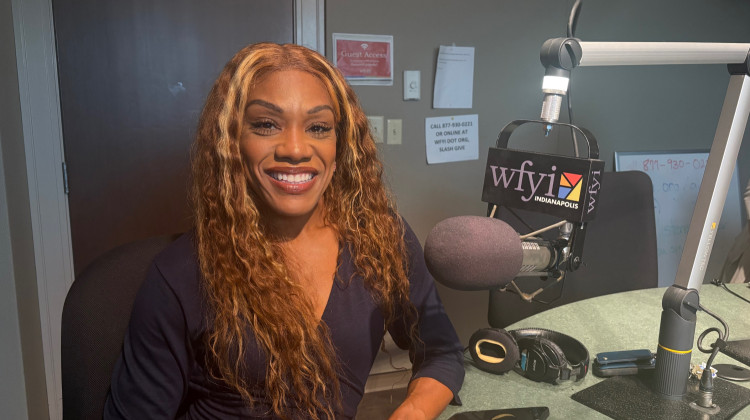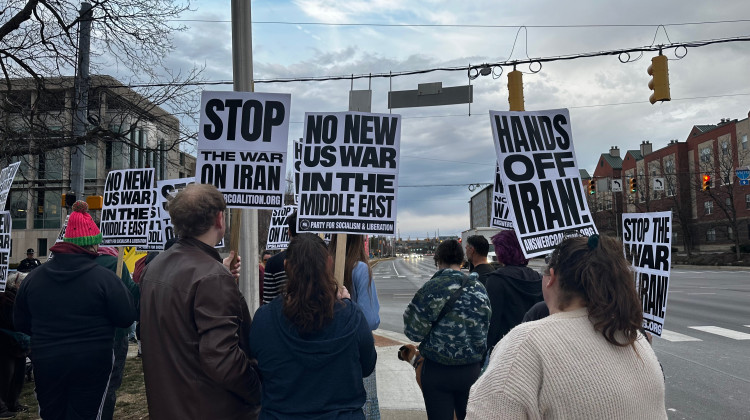Youth violence in Indianapolis recently received high profile local and statewide attention after a number of shootings involving teens. Many non-profits work to counter the root causes of this violence, including the Boys and Girls Club of Indianapolis. WFYI’s Jill Sheridan asked CEO Maggie Lewis about its programs and how to get more children to connect with them.
This interview has been edited for time and clarity.
Jill Sheridan: Talk a little bit about the history of the program and how it has been so successful.
Maggie Lewis: Yes, the organization has been around for 132 years, and I believe it's a part of this city's fabric. It started out as the Boys Club, where boys would come and get all those great service and then in 1990, believe it or not, they allow girls to show up into that space. And so again, just a rich history here in our community of serving those who need the most support possible.
Sheridan: And we're talking about part of the programming that is (called) the community protective factor. Can you talk a little bit about, what that is and what that really means.
Lewis: So the Boys and Girls Clubs of Indianapolis provide a safe place where kids can come and truly just be kids. And so we all can turn on the news, listen to the radio and hear about all the things that are happening that are impacting our kiddos. But also, we provide that mentorship. We know how important it is to have a caring adult.
We ensure that there's tutoring available to our young kiddos. We also provide services for kids who have gotten off the beaten path, if you will. Maybe they've dropped out of school or had trouble with law enforcement. We provide an opportunity for them to come and get services and divert them from getting caught up in our legal system. Basic needs; food, right? We know that a lot of our kids live in food deserts. We ensure that they have healthy, nutritional meals and snacks, and some of our kiddos even go home with meals.
Sheridan: We're talking about academics, character development, that health piece — that health piece is really, really critical when we're talking about the social determinants of why one child is going to thrive and another might not. Gun violence is also a public health concern.
Lewis: So it's about prevention and teaching them how to problem solve. There's got to be a way for us to deal with our differences without going to grab a gun to have a street fight, if you will. So it's important that we take the time to talk to them about, 'How do you solve your differences in a meaningful way that doesn't harm you or or the person that you're having that issue with?'
Sheridan: In the last couple decades, we really have turned, as a many communities have, to looking at these root causes. How can we think about really doing that root cause work?
Lewis: I think sometimes as adults, we make things a little bit too complicated. We have to just kind of step back and get back to the basics. Our mission has not changed. We want to ensure that our kiddos have the tools that they need in order to be successful.
Sometimes it is making sure that they have a roof over their head, a safe place to go and be a kid. But sometimes it's also food right. Maybe they're acting out because they need to eat right, and so the best thing that they can figure out is go rob someplace and get something to eat. So again, I think we just have to get back to the bases and take the time to find out what's really going on in that child's life that's allowing him or pushing him to or her to act a certain way.
Sheridan: And how can we help connect more youth. We obviously had a very high profile incident involving youth in the downtown area on July 4, and then about a week later, another one on the Far Eastside at four o'clock in the afternoon. Obviously a curfew is not going to help. You know that incident. But how can we get more youth connected to these services?
Lewis: Word of mouth, this platform helps us. All the stations can talk about safe places where kids can go and be kids. And then one of the things that I share with my team — I think it's important as a service provider that we ensure that we're relevant and providing the things that young folks want to do. And so we have to do our part. But again, as many folks talking about the Boys and Girls Clubs and those other organizations — it really does help us, and if you can direct them that way as well, that truly does help.
Sheridan: Thank you so much for coming.
Lewis: It's my pleasure. Thank you.
Maggie Lewis, CEO of the Boys and Girls Club of Indianapolis is also a member of the Indianapolis City-County Council.
 DONATE
DONATE









 Support WFYI. We can't do it without you.
Support WFYI. We can't do it without you.